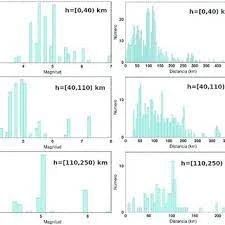Definition: Soil bearing capacity refers to the maximum vertical load (pressure) that soil can support without failure. It's a crucial property considered during foundation design to ensure the structure's stability. There are two key types of bearing capacity:
Ultimate Bearing Capacity (Qult): This is the theoretical maximum pressure a soil can withstand before shear failure occurs. It's not used directly in design as it doesn't account for settlement.
Allowable Bearing Capacity (Qall): This is the safe working load a soil can support, considering both shear failure and tolerable settlement. It's calculated by dividing the ultimate bearing capacity by a factor of safety (FS).
Click the Translate button(see right) on this post to set your Own Language to understand more perfectly!!
Soil Bearing Capacity Calculator
Continue Definition:
Soil Bearing Capacity
Soil bearing capacity refers to the maximum vertical load (pressure) that soil can support without failure. It's a crucial property considered during foundation design to ensure the structure's stability. There are two key types of bearing capacity:
Ultimate Bearing Capacity (Qult): This is the theoretical maximum pressure a soil can withstand before shear failure occurs. It's not used directly in design as it doesn't account for settlement.
Allowable Bearing Capacity (Qall): This is the safe working load a soil can support, considering both shear failure and tolerable settlement. It's calculated by dividing the ultimate bearing capacity by a factor of safety (FS).
Supporting Equations:
There are various methods to calculate the ultimate bearing capacity, depending on factors like soil type, depth, and geometry of the foundation.
Here's a common approach using Terzaghi's equation for shallow foundations on a cohesive soil:
Qult = cNc * sNγ + γD
Where:
c = Cohesion (shear strength) of soil (kPa)
Nc = Bearing capacity factor depending on depth and failure mechanism (dimensionless)
s = Depth factor (dimensionless)
Nγ = Unit weight factor (dimensionless)
γ = Unit weight of soil (kN/m³)
D = Depth of foundation (m)
The allowable bearing capacity is then determined by:
Qall = Qult / FS
Safe Bearing Capacity Example:
Let's say a site investigation reveals the following:
Cohesive soil with a cohesion value (c) of 100 kPa
Unit weight of soil (γ) is 18 kN/m³
Foundation depth (D) is 2 meters
We'll use a typical factor of safety (FS) of 3 for this example.
Finding Ultimate Bearing Capacity (Consult a geotechnical professional for actual calculations):
Assuming a certain value for Nc (e.g., Nc = 5.14) and s (e.g., s = 1.0), we can calculate Qult using the equation above.
Finding Allowable Bearing Capacity:
Qall = (Calculated Qult) / 3 (chosen FS)
This will give you the safe load the soil can support for your specific foundation design.
How to EARN MONEY using safe soil bearing capacity Calculation in our real life?????
Here's how you can leverage your knowledge of safe soil bearing capacity calculation to earn money in real life:
1. Become a Geotechnical Engineer:
This is the most direct path. Geotechnical engineers specialize in soil mechanics and foundation design. They perform site investigations, analyze soil properties (including bearing capacity), and recommend foundation types for safe and stable structures. Requires a bachelor's degree in civil engineering and potentially further licensing depending on your location.
2. Offer Soil Testing and Consulting Services:
You can work independently or with a construction company, offering soil testing services to determine bearing capacity. This would involve collecting soil samples, conducting lab tests, and analyzing the data to calculate safe bearing capacity. May require additional training or certifications in soil testing procedures.
3. Work for a Construction Company (Specialize in Foundations):
Construction companies often have dedicated teams for foundation work. Your expertise in calculating safe bearing capacity would be valuable during foundation design and construction. You can focus on project management, technical aspects of foundation construction, or liaise with geotechnical engineers.
4. Provide Consulting Services for Private Landowners:
Homeowners or developers planning construction projects might need basic soil bearing capacity assessments before designing structures. You can offer on-site consultations, analyzing readily available soil data or recommending further testing for a more detailed report.
5. Develop Educational Content (Online Courses, Tutorials):
If you have a passion for teaching, you can create online courses or tutorials explaining safe soil bearing capacity calculations for construction professionals or engineering students.
Important Considerations:
Liability: Soil bearing capacity calculations are crucial for structural safety. Ensure you have the proper qualifications and experience before offering professional services. Consider professional liability insurance.
Regulations: Building codes and regulations may dictate specific requirements for soil testing and foundation design. Stay updated on local regulations in your area.
Here are few soil's list of bearing capacity for example.
Soil Type Safe Bearing Capacity (kPa)
Rock (excellent quality) 4000+
Gravel (dense, well-graded) 2000 - 4000
Sand (dense, clean) 400 - 2000
Sand (loose) 100 - 400
Silt 100 - 400
Clay (stiff) 200 - 800
Clay (soft) 50 - 200
Do YOU Want To Earn Money In Various Ways, Click The Link & Explore Your Field of Interest!!!





No comments:
Post a Comment